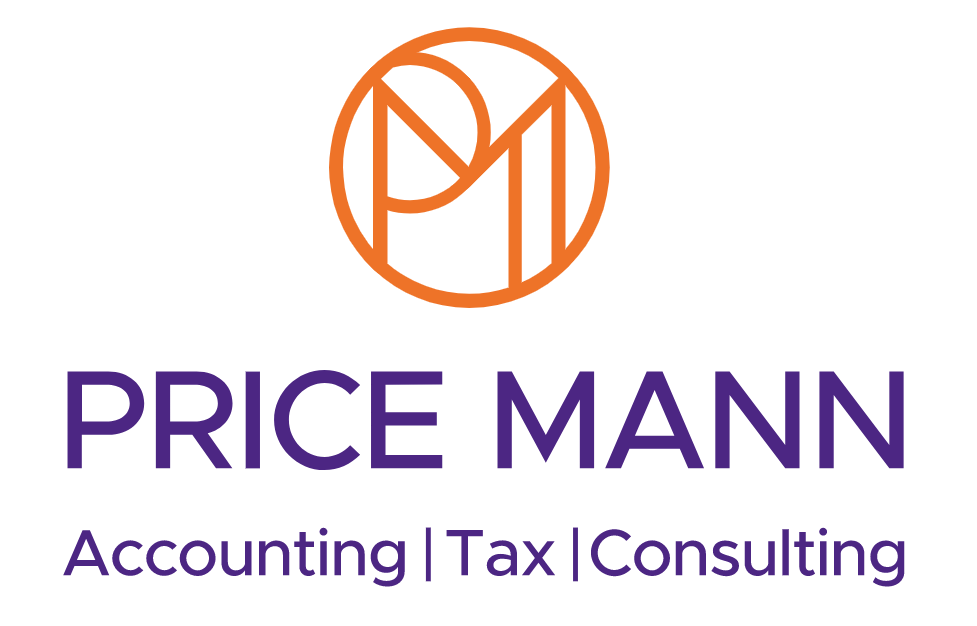Debt management strategies
Debt management strategies
Practical and effective steps to manage debt
Managing debt effectively is an increasingly crucial component of personal financial health in today’s economic climate. With rising living costs and the easy availability of credit, it’s easy to find yourself in a situation where debt becomes overwhelming.
This guide offers you practical and effective strategies tailored for managing your debt. Our aim is to empower you with the knowledge and tools necessary to tackle debt management. By implementing these strategies, you can work towards regaining financial stability and achieving peace of mind.
Whether you’re dealing with high-interest credit card debt, personal loans or mortgage payments, our advice is designed to help you manage your financial situation.
Understanding your debt
The first step in managing debt is to have a clear understanding of what you owe. This involves listing all your debts, including credit cards, loans, mortgages and any other financial obligations. For each debt, note the total amount owed, the interest rate and the monthly payment. This will give you a comprehensive overview of your debt situation and serve as a foundation for developing a tailored debt management plan.
Prioritising debts
Not all debts are created equal. Some carry higher interest rates, which can cause your total debt to increase more quickly. It’s essential to prioritise your debts, focusing on paying off those with the highest interest rates first.
This method, often called the ‘avalanche approach’, can save you a significant amount in interest payments over time.
Budgeting for debt repayment
Creating a budget is crucial for effective debt management. Your budget should detail your income, essential expenses (such as rent, utilities and groceries), and allocations for debt repayments. The goal is to identify areas where you can reduce spending and reallocate those funds towards paying off debt. It’s vital to be realistic and maintain a budget that supports your basic needs while maximising debt repayment.
Debt consolidation
For individuals juggling multiple debts, consolidation can be a viable strategy. Debt consolidation involves combining multiple debts into a single loan, ideally with a lower interest rate. This can simplify your payments and potentially reduce the amount of interest you pay.
However, it’s important to carefully consider the terms of a consolidation loan, as extending the loan term can result in paying more interest over time.
Negotiating with creditors
If you’re struggling to meet your debt repayments, it’s advisable to communicate directly with your creditors. Many are willing to negotiate terms, such as reduced interest rates or extended payment periods, to help you manage your payments. Being proactive and transparent with creditors can prevent your account from being sent to a debt collections agency, which can negatively impact your credit score.
Using a debt management plan (DMP)
A DMP is a service offered by financial advisers or debt management companies to help you repay your debts. Under a DMP, you make a single monthly payment to the service provider, who then distributes this payment among your creditors.
While DMPs can offer relief and a structured path to debt repayment, it’s important to understand any fees involved and how entering into a DMP may affect your credit score.
Considering an individual voluntary arrangement (IVA)
For those facing significant debt that cannot be managed through the strategies mentioned above, IVA may be an option. An IVA is a formal agreement between you and your creditors, mediated by an insolvency practitioner, to pay off a portion of your debts over a fixed period, usually five years. At the end of the IVA, any remaining debt is written off. While IVAs can offer a way out of overwhelming debt, they have serious implications, including affecting your credit rating and potentially your current and future employment.
Exploring debt relief orders (DROs)
DROs offer a solution for managing debts for individuals who owe less than £30,000, have minimal spare income (typically less than £75 per month), and do not own their home. With a DRO, individuals can halt payments towards their debts, including interest, for a 12-month period, during which they must adhere to certain restrictions. After this period, they are released from the debts and restrictions, unless their financial situation improves, which could lead to the cancellation of the DRO, or if they fail to follow the rules, potentially extending the DRO.
Essential payments such as rent, bills and certain debts not covered by the DRO, such as student loans or court fines, must still be met. The DRO imposes several restrictions, prohibiting individuals from borrowing more than £500 without disclosing the DRO to the lender, acting as a company director, creating or promoting a company without court permission, managing a business without informing business partners of the DRO, and opening a bank account without notifying the bank or building society of the DRO. From 28 June 2024, the total amount of debt that can be covered by a DRO will increase from £30,000 to £50,000 for non-homeowners.
Bankruptcy: A last resort
Bankruptcy should be considered a last resort due to its severe and long-lasting impact on your credit history. In the UK, declaring bankruptcy can release you from most debts after a certain period, typically one year.
However, it can restrict your financial freedom, affecting your ability to obtain credit, and might result in the loss of assets, including your home. Before considering bankruptcy, seek professional financial advice to explore all other options.
Maintaining financial health post-debt
Maintaining financial health after overcoming debt is crucial to ensure long-term financial stability and to avoid falling back into debt. This part of your financial journey is about reinforcing good financial habits and making strategic decisions that support your financial wellbeing.
Here’s a more detailed look at how you can maintain financial health post-debt.
- Continuing to budget effectively: Budgeting should not be a temporary measure used only while paying off debt, it should become a fundamental part of your financial routine. An effective budget helps you control your spending, save money and ensure you are not spending more than you earn. It also allows you to allocate funds towards your savings goals, which is essential for building financial security. Review and adjust your budget regularly to reflect changes in your income, expenses and financial objectives. Consider using budgeting apps or tools to streamline the process and provide you with insights into your spending habits.
- Building an emergency fund: One of the most effective ways to protect yourself from falling back into debt is to build an emergency fund. This fund acts as a financial safety net that can cover unexpected expenses, such as medical bills, car repairs or sudden job loss, without the need to borrow money. Start by setting a goal to save three to six months’ worth of living expenses. If saving this amount seems daunting, begin with a smaller goal, such as £1,000, and gradually increase it over time. Prioritise contributing to your emergency fund by setting aside a portion of your income each month, even if it’s a small amount.
- Regularly reviewing financial goals and progress: Setting financial goals is important for maintaining motivation and providing direction for your financial decisions. These goals can range from saving for a house deposit, investing for retirement or saving for a holiday. Regularly review your goals to ensure they remain aligned with your financial priorities and adjust them as necessary. Additionally, tracking your progress towards these goals can be incredibly motivating and can help reinforce positive financial habits.
- Investing in your future: Once you’ve paid off debt and built an emergency fund, consider investing as a way to grow your wealth and work towards long-term financial goals. Whether it’s through a pension scheme, stocks, bonds or other investment vehicles, investing can provide you with additional income and help protect against inflation. Before investing, educate yourself on the different types of investments available, their risks and potential returns. You may also want to consult with a financial adviser to create an investment strategy that suits your risk tolerance and financial goals.
- Protecting your credit score: After clearing your debt, maintaining a healthy credit score is important, as it affects your ability to borrow money in the future at favourable interest rates. Continue to manage your credit responsibly by paying bills on time, keeping credit-card balances low and not applying for new credit unnecessarily. Regularly check your credit report to ensure accuracy and monitor for any fraudulent activity.
- Continuing financial education: Staying informed about personal finance topics is key to maintaining financial health. Continuously educate yourself on financial planning, investments, taxes and any changes in the financial landscape that could affect your finances. Many resources are available, including books, podcasts, online courses and financial blogs, that can provide valuable insights and strategies for managing your money effectively.
Seeking professional guidance when needed
Don’t hesitate to seek professional financial advice when facing complex financial decisions or when planning for significant financial goals. A qualified financial adviser can provide personalised advice tailored to your unique financial situation, helping you make informed decisions that support your financial health and stability.
Maintaining financial health post-debt is an ongoing process that requires discipline, planning and a commitment to making informed financial choices. By adopting these strategies, you can build a strong financial foundation that supports your long-term goals and protects against future financial uncertainties.
Final thoughts
Debt management requires a proactive approach, discipline and sometimes professional guidance. By understanding your debt, prioritising repayments, exploring consolidation options and possibly seeking formal arrangements like a DMP, IVA or DRO, you can work towards regaining financial control. Remember, the path to debt-free living is a journey that requires patience, persistence and a commitment to making informed financial decisions.
As your accountants, we are here to support you every step of the way.
Our expertise can guide you through the complexities of managing your debts, help you develop a tailored strategy that fits your personal financial situation and provide you with the tools and resources needed to navigate the process.
Whether it’s creating a realistic budget, understanding the implications of different debt solutions, or assisting in negotiations with creditors, we’re committed to helping you achieve financial stability and peace of mind.
Let’s work together to build a solid foundation for your future, free from the burden of debt.
Struggling with debt? Contact us today













